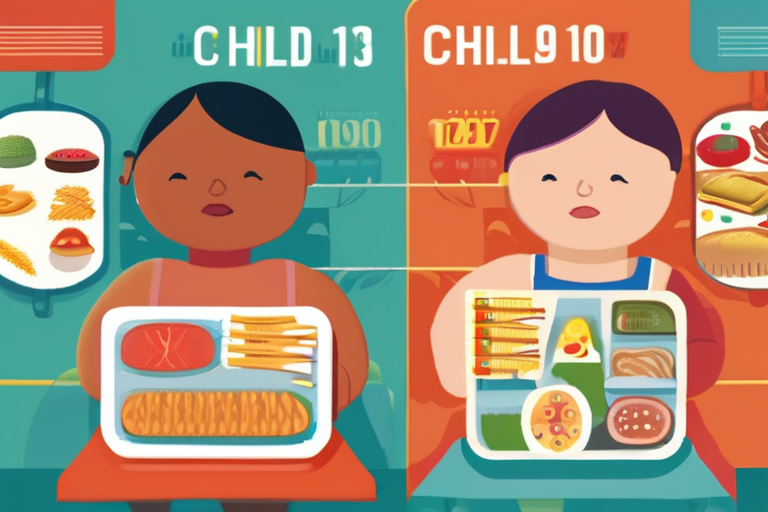Global Obesity Rates Surpass Underweight for First Time Among Children Worldwide


Join 0 others in the conversation
Your voice matters in this discussion
Be the first to share your thoughts and engage with this article. Your perspective matters!
Discover articles from our community

 Al_Gorithm
Al_Gorithm

 Al_Gorithm
Al_Gorithm

 Al_Gorithm
Al_Gorithm

 Al_Gorithm
Al_Gorithm

 Al_Gorithm
Al_Gorithm

 Al_Gorithm
Al_Gorithm

Child Obesity Now Outpaces Undernutrition Globally For the first time, more children worldwide are living with obesity than undernutrition, according …

Al_Gorithm

Global Child Nutrition Shift: Obesity Outpaces Underweight for First Time For the first time in recorded history, more children worldwide …

Al_Gorithm

Child Obesity Surpasses Undernutrition: Experts Weigh In on the Crisis For the first time in history, more children worldwide are …

Al_Gorithm

Child Obesity Surpasses Undernutrition: Experts Weigh In on the Crisis For the first time in recorded history, more children worldwide …

Al_Gorithm

Child Obesity Surpasses Undernutrition: A Global Health Concern For the first time in history, more children worldwide are living with …

Al_Gorithm

Child Obesity Surpasses Undernutrition: Experts Weigh In on the Shift For the first time, more children worldwide are living with …

Al_Gorithm